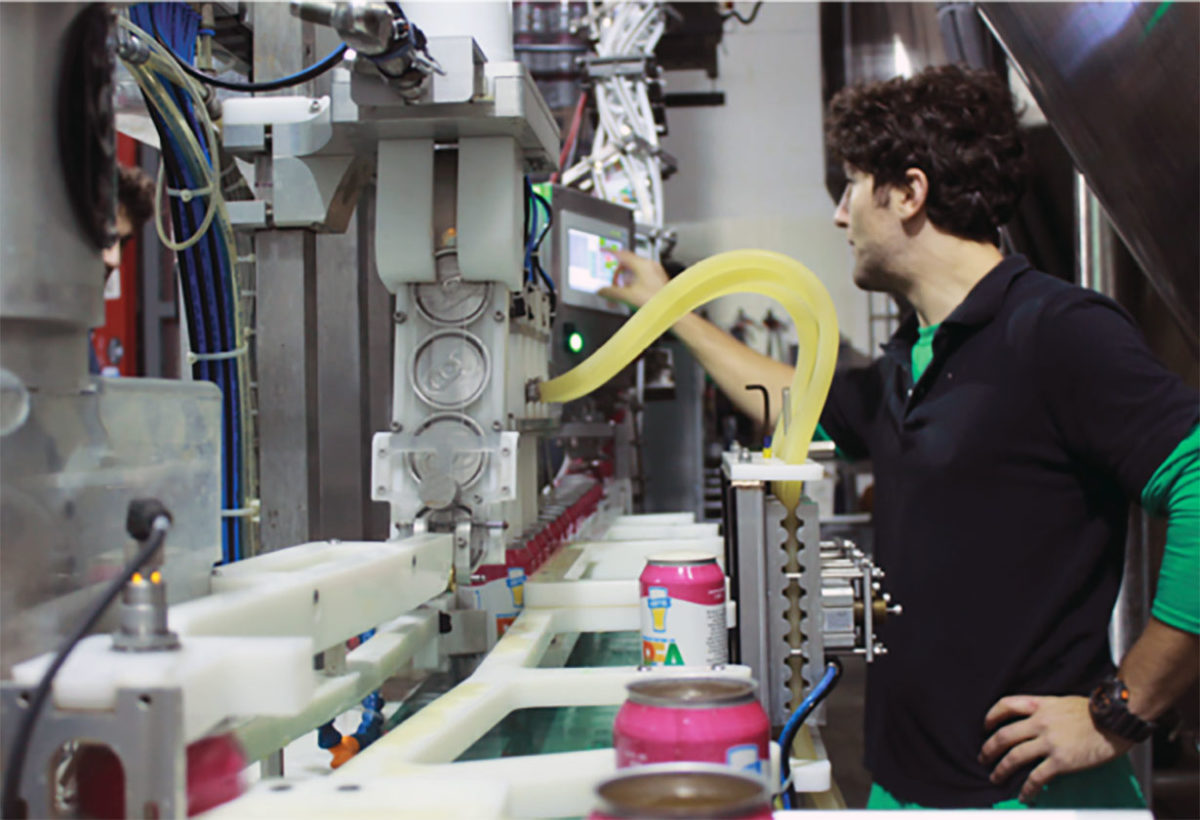Area brewers brace for impact of aluminum, steel tariffs
Area brewers are bracing themselves for a possible hit from the new tariffs on imported aluminum and steel ”” although just how much of a hit remains uncertain.
 “People tend to think that a penny or two more for a can of beer is something that nobody will notice,” said Tom Price, director of brewery operations at Stamford”™s Half Full Brewery. “What they don”™t realize is that adding a couple of pennies per can adds 50 cents to a case, which can be meaningful to a company of our size.
“People tend to think that a penny or two more for a can of beer is something that nobody will notice,” said Tom Price, director of brewery operations at Stamford”™s Half Full Brewery. “What they don”™t realize is that adding a couple of pennies per can adds 50 cents to a case, which can be meaningful to a company of our size.
“Then there”™s the distributor, the retailer and the consumer,” Price continued. “Somebody”™s going to have to make (that added expense) up, and it will probably be the consumer. If they end up paying another dollar for a six-pack, they might try something else.”
“The math on a per-can and per-case basis will definitely have an effect on us,” agreed P. Scott Vallely, founder and president at Danbury”™s Charter Oak Brewery. “It will very definitely translate to a higher cost per unit.”
Vallely characterized the area”™s craft brewers as “munchkins when it comes to someone like Anheuser-Busch or MillerCoors. They can absorb something like that better than we can.”
Not that the beer giants are going along docilely. The 10 percent tariff on all types of aluminum and 25 percent tariff on all types of steel, which went into effect on March 23 ”” exceptions are still being worked out, adding to the uncertainty ”” “will likely cost U.S. brewers millions of dollars” according to a statement from Anheuser-Busch, which urged the Trump administration to rethink the new policy.
“We currently operate 21 breweries in 15 states and employ more than 18,000 people in the U.S.,” Busch said, adding that the tariff would make it “more difficult to grow and further invest in our U.S. operations.”
Similarly, MillerCoors warned that “American workers and American consumers will suffer” from the tariffs, saying that while it purchases as much domestic aluminum as it can, “there simply isn”™t enough supply to satisfy the demands of American beverage makers like us.”
Not surprisingly, the Brewers Association has also slammed the action, saying that it “opposes any policy that could negatively impact this growing industry.”
According to the trade group, aluminum cans represent 28.5 percent of packaged production for brewers; those who produce 10,000 barrels a year or less ”” more than 90 percent of breweries ”” are the largest growing segment of brewers that packages their beer in cans. “The smallest packaging brewers would be the ones most directly impacted by a price increase,” BA said.
Higher steel prices will also impact existing breweries, breweries in planning and breweries looking to expand, the group said. Ninety-nine percent of craft breweries offer draft production, which makes up 40 percent of craft sales. Kegs, which are made of steel, likely would increase in cost. Keg theft, already a growing problem in the brewing industry, also could increase as the kegs become more valuable. The BA estimates that keg loss costs each brewery between $0.46 and $1.37 per barrel of beer they produce.
Vallely said he”™s in a particular pickle, as he recently made the decision to switch over from an all-bottles to an all-cans approach. “With everybody ”” producers, brewers and consumers ”” it”™s ”˜cans, cans, cans”™,” he said. “In part that”™s due to a ”˜follow-the-fun”™ approach. It”™s much easier to take cans than bottles on the beach or a boat.”
On the other hand, Vallely said he”™d met with an event planner in Greenwich last week to discuss a catering opportunity. “It”™s kind of a hoity-toity event and they are absolutely not interested in cans ”” it was bottles all the way. Sometimes I don”™t know which way is up,” he laughed.
As with many declarations from the federal government these days, there is a lot of “let”™s wait and see what really happens” attitude among the brewers.
“To be 100 percent honest, I really don”™t know” what the ultimate effect will be, said Scott Vaccaro, founder of Captain Lawrence Brewing Co. in Elmsford, New York. “I can only assume that some suppliers will take this as an opportunity to raise prices. We have not heard from any of ours in regards to pricing changes, so as of today we do not have anything concrete to report.”
“Considering our volume, I don”™t think it will have an immediate impact on us, especially since we just started,” said Rob Kaye, who with his son David co-owns Ridgefield”™s Nod Hill Brewery.
Nevertheless, by producing around 800 barrels, or 60,000 cans, a year ”” compared with the 125 million barrels that Anheuser-Busch annually produces ”” Nod Hill stands to lose more, Kaye said. “It definitely could be a much bigger issue for us.”
“We”™re not really sure what”™s going to happen,” said Price at Half Full. “People are definitely concerned, but we haven”™t even spoken with one of our equipment manufacturers about it.
“The big irony here,” he added, “is getting that tax cut for small-business owners and then having to swallow an increase in doing business and raising prices right after that.”